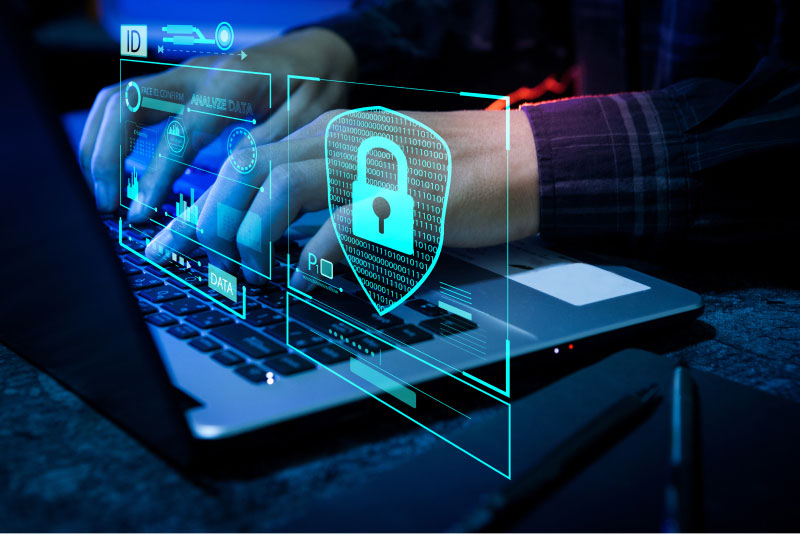Information & Cyber Security
Information and cyber security in protecting information, systems, networks, and data from unauthorized access, disclosure, disruption, modification, or destruction. In the dynamic and interconnected digital landscape, Information & Cyber Security plays a pivotal role in ensuring the confidentiality, integrity, and availability of sensitive data. These principles serve as the foundation, with confidentiality preserving data access, integrity safeguarding against unauthorized alterations, and availability ensuring data accessibility when needed.

Navigating the cyber threat landscape requires an understanding of various risks, including malware, phishing attacks, denial-of-service incidents, and insider threats. Each poses unique challenges that necessitate a robust security strategy. Key components of Information & Cyber Security encompass firewalls and intrusion detection systems to thwart unauthorized access, encryption for data protection, multi-factor authentication to enhance access controls, and the establishment of security policies and procedures. Incident response planning is equally critical, preparing organizations to effectively respond to security incidents.
Best practices in Information Security include regular security audits, employee training, patch management, data backups, and strict access controls. These practices collectively fortify an organization's defenses against evolving cyber threats. Several frameworks guide organizations in establishing comprehensive cyber security measures. Notable examples include the NIST Cybersecurity Framework, ISO/IEC 27001 for information security management systems, and the CIS Critical Security Controls, which outline best practices for cybersecurity.
Continuous Monitoring and Threat Intelligence
Security Information and Event Management (SIEM): Aggregating and analyzing security data from various sources. Threat Intelligence Feeds: Staying informed about the latest cyber threats and vulnerabilities..
- Cyber Threat Landscape
- Key Components of Information & Cyber Security
- Best Practices for Information Security
- Incident Response and Cybersecurity Incident Management
Principles of Information & Cyber Security
In the realm of Information & Cyber Security, three foundational principles guide all efforts—Confidentiality, ensuring that sensitive information is only accessible to authorized individuals; Integrity, protecting data from unauthorized alteration or corruption; and Availability, ensuring that information and systems are accessible when needed.

Emerging technologies contribute to the evolving landscape, with Artificial Intelligence (AI) and Machine Learning (ML) enhancing threat detection, blockchain providing secure transaction recording, and the Zero Trust Security Model emphasizing continuous verification of users and devices. Compliance with regulations such as GDPR, HIPAA, and PCI DSS is crucial for organizations handling sensitive data. These standards mandate secure practices to protect user privacy, healthcare information, and credit card data, respectively. Effective incident response and cybersecurity incident management involve a systematic approach, including detection, containment, eradication, recovery, and a thorough analysis of lessons learned to enhance future security measures.